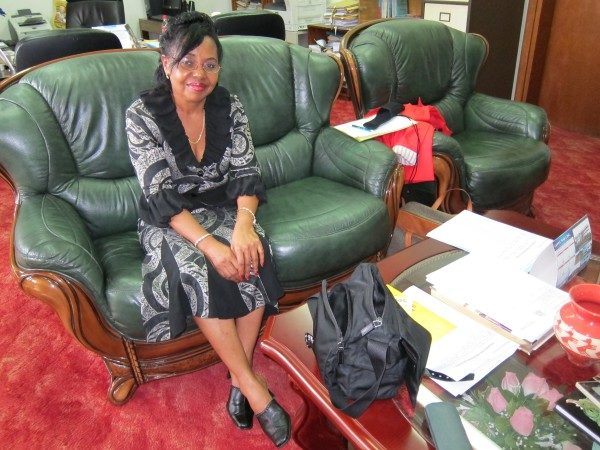
By Sarah Little
Corruption affects everyone but it is often women who suffer the most. All too often, women experience extortion and corruption at the hands of public officials when it comes to the provision of public services. In many societies women do not enjoy the same rights and privileges as men, reducing their ability to counter the extortion they confront.
Unfortunately, too few grassroots anti-corruption interventions substantively take gender into account throughout their planning, implementation and evaluation. PTF recognizes these shortcomings and is working to incorporate greater gender sensitivity into the projects it supports. We’re also learning from past experiences to contribute to the growing body of knowledge on gender and corruption. With this in mind, we’re heralding this International Women’s Day by focusing on the role of women in two PTF-supported projects in Cameroon and India.
Strengthening the Internal Mechanisms of the University of Buea for Tracking and Curbing Corruption was a PTF-supported project implemented by the International Governance Institute Focal Integrity Team for Cameroon (IGI-FITCAM), that aimed to do just what its title suggests – train University officials on ways to curb corruption and reduce waste of scarce resources. A formal training program was combined with a public awareness-raising campaign about corrupt practices in higher education, so as to challenge the “mindset of powerlessness.”
These corrupt practices have a particularly destructive impact on women. Trading sexual favors for access to goods and services is a common phenomenon in Cameroonian society, especially in the University environment. Through consultation with both male and female students, IGI-FITCAM learned that sexual harassment of female students by professors and trading sexual favors for passing grades were prevailing abuses of power. Various surveys explicitly addressed this issue. The surveys were anonymous, providing a safe environment for women to come forward with their experiences without fear of retaliation.
Baseline data was collected and benchmarks were set to assess positive or negative changes. Students were offered the opportunity to bring their grievances about unwanted sexual advances by Professors to one of the highly respected Vice-Chancellors. Students were able to report their experiences anonymously and the perpetrators knew their actions might be reported to the Vice-Chancellor. This increased transparency led to almost immediate results. A follow-up survey revealed that this type of abuse of power had diminished considerably.
A large part of the project’s success was due to strong buy-in of the University’s leadership. From the onset, it was clear that the Vice-Chancellor, Dr. Lyonga, would be a strong supporter and active advocate. She wanted ethical behavior to become “second nature,” as she called it, for faculty, staff and students alike. “Fighting corruption, that is my life,” she says. The Vice-Chancellor is clearly a champion in the fight against corruption, with an extraordinary amount of courage and a strong commitment to transparency at all levels of University life.
Meanwhile, in India, another PTF-partner was implementing a project to increase transparency in government food schemes through community participation. The Public Distribution System (PDS) in India is a national program, intended to distribute subsidized staple foods to low-income families. Since women most often are responsible for feeding their families, they are considered the direct beneficiaries of the PDS. While the program should serve as a mechanism for increasing gender equality by lessening the burden on women to provide food, the PDS was failing to do so in one region due to rampant corruption. Usually, when women went to the local store to receive the subsidized staple foods, the merchant was “out of stock.”
Guided by a local PTF-supported NGO, Nava Jeevana Mahila Okkoota (NJMO), women took action in their own communities. NJMO conducted capacity-building workshops, consultations, one-on-one negotiations, and public hearings to inform the women of their rights and entitlements. As a result, the women decided on a simple, but very effective, solution. They sat down in large numbers in front of the store and tirelessly chanted songs describing the injustices they had endured. As a result, shopkeepers were pressured into transparently fulfilling their mandate and the subsidized foods were made available as intended by the PDS.
As a result of this modest intervention, women in the targeted communities involved felt an overwhelming sense of empowerment and formed new advocacy groups that have continued to take on other gender issues, such as domestic violence, decision-making in the household, access to maternal and children’s health facilities, and employment. They’ve leveraged their heft in numbers to effectively highlight grievances and seek solutions. These women knew best how to deal with corruption in their communities – all they needed was a little support.
These two cases reaffirmed that understanding the impact of corruption through a gendered lens leads to more targeted and effective anti-corruption strategies. Furthermore, supporting women in the fight against corruption harnesses their critically important perspectives, knowledge and leadership.

